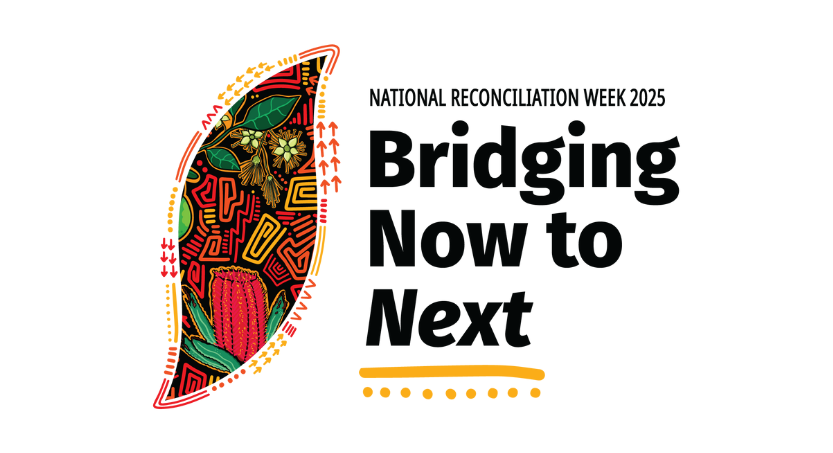Philanthropy Australia to develop an Innovate RAP

This year’s National Reconciliation Week theme is Bridging Now to Next, which urges us all to continue to ‘push forward as past lessons guide us’. With this in mind, Philanthropy Australia looks at the key learnings and outcomes from recently completing its Reflect RAP, while the organisation prepares to develop the Innovate RAP on the next stage of its learning journey.
Philanthropy Australia chose to work within the Reconciliation Action Plan in 2022 because it provided a framework to explore our place in the ecosystem. It also required us to look within, both as an organisation and as individuals. A Reflect RAP helps prepare an organisation to engage in reconciliation meaningfully. In 2024, we conducted a review of our Reflect RAP and submitted to Reconciliation Australia, which has been accepted.
In writing and implementing our Reflect RAP, the organisation formed a Staff RAP Working Group, the members of which have become champions and allies. RAPs require an all-of-organisation approach and a willingness to be curious, learn and act. In all of our offices around Australia, the Staff RAP Working Group are engaging with colleagues, Philanthropy Australia members and the broader sector to share our learnings.
Internally, we are improving our systems to develop respectful relationships and increase opportunities for Aboriginal and Torres Strait Islander people. One of the key developments has been the establishment of our First Nations Governance Committee (FNGC), which is made up of highly respected, experienced and influential Aboriginal and Torres Strait Islander leaders.
The organisation has adapted a reconciliation lens to our core offerings such as our Philanthropy Australia Conference and launching a first-of-its-kind survey on philanthropic funding for Aboriginal and Torres Strait Islander people. Our 2024 review highlighted key areas to progress such as updating some of our workplace policies, professional development pathways and a review of cultural learning needs within our organisation.
Reflections from the Staff RAP Working Group
Dylan Smith, former Director of Engagement for Philanthropy Australia in Western Australia, led the Staff RAP Working Group following the departure of Vicki Norton, who began the process. Here, he reflects on some key learnings.
The Staff RAP Working Group felt a strong responsibility to the wider staff and provided updates through the review journey. We were aware of our role as membership organisation and the role we can play in leading by example for our sector. Most importantly, we felt the responsibility of providing an accurate review to the FNGC. For us, the leadership of the FNGC was crucial in providing guidance and feedback.
The RAP has been a way for Philanthropy Australia to mobilise the organisation’s efforts towards reconciliation, to formalise our commitment to First Nations people and communities and to hold ourselves accountable.
Two important messages from the FNGC have stuck with me. Firstly, RAPs or equivalent approaches should not be limiting in any way. The list of actions and tasks listed should not be the only things you do as an organisation. Instead, there must be flexibility to see what other opportunities emerge. And secondly, that any efforts must be authentic and backed up by actions – it can do more harm than good to make plans and statements that don’t lead to meaningful actions and change.
Pushing forward with past learnings
Philanthropy Australia has now begun work on an Innovate RAP, which is about implementing changeandfocusing on strengthening our relationships with and empowering Aboriginal and Torres Strait Islander people. It’s also about piloting strategies for further reconciliation commitments. Philanthropy Australia will continue to share our reflections and learnings with our members and the broader sector.